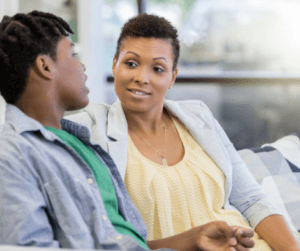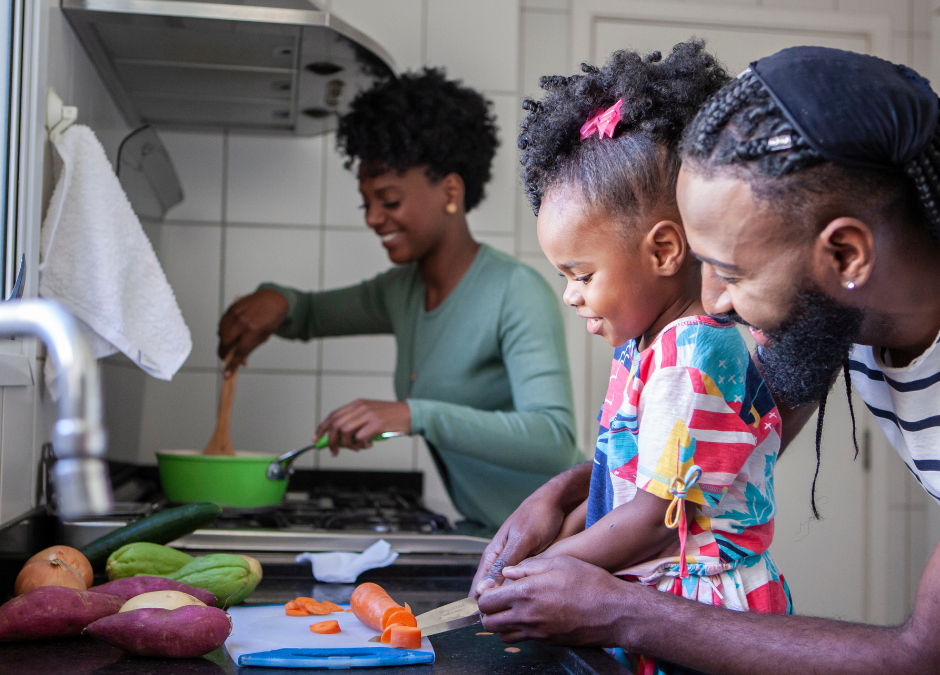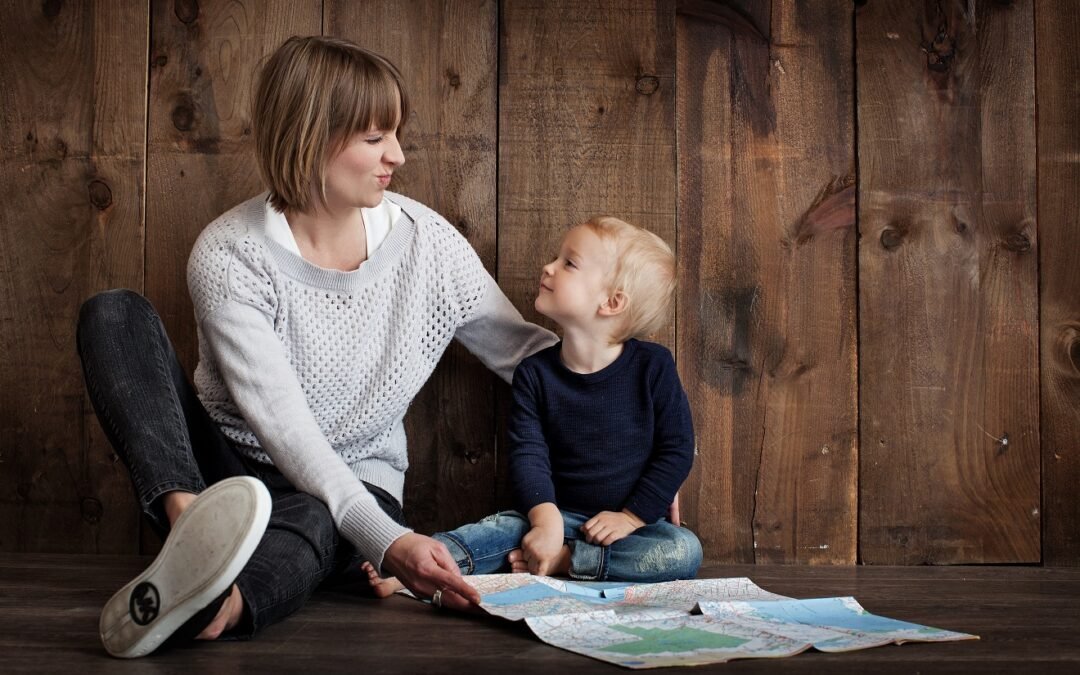When do you start talking to your kids about dating? This is a question I have a strong opinion on. I think the best time to start talking about dating is significantly before your child starts dating. In our home, about twelve is when I start these discussions.
Bringing It Up
 Why 12? Because middle schoolers are seriously interested in adult topics. They might not be ready to live an adult life, but it has occurred to them they will not be children forever. They are starting to wonder how they get from where they are to adulthood. For this reason, it is also a great window to start teaching life skills like cooking, cleaning, and budgeting.
Why 12? Because middle schoolers are seriously interested in adult topics. They might not be ready to live an adult life, but it has occurred to them they will not be children forever. They are starting to wonder how they get from where they are to adulthood. For this reason, it is also a great window to start teaching life skills like cooking, cleaning, and budgeting.
But back to dating. I also like talking to my kids well before they actually start dating so that they are not thinking of an actual boyfriend or girlfriend during our conversations. Saying something like “A good boyfriend/girlfriend should be someone you have great conversations with,” is easy to hear when it isn’t about someone specific. If they are already dating, this is a chance to take offense that you think the person they are dating doesn’t listen or doesn’t talk enough. Even if you didn’t mean to be critical, teens can often hear criticism and become defensive.
What to Say
 Now that we have established the best time to have this talk, what do you say? This depends on a lot of factors. My parents got divorced when I was about that age, and my mother talked to me a lot about all the things she wished she had seen as important when she was younger. Different families are going to have different values they want to pass on. I’ll share some topics you might want to cover, but keep in mind that this needs to be adjusted for not just your family, but possibly for each of your children.
Now that we have established the best time to have this talk, what do you say? This depends on a lot of factors. My parents got divorced when I was about that age, and my mother talked to me a lot about all the things she wished she had seen as important when she was younger. Different families are going to have different values they want to pass on. I’ll share some topics you might want to cover, but keep in mind that this needs to be adjusted for not just your family, but possibly for each of your children.
Respect
To me, the first and most important thing to tell my kids about choosing someone to date is telling them the person they date needs to respect them. I tell them they need to date someone who may not share their interests but is willing to listen to them talk about what is important to them. Someone willing to go to things that are important to them. This could mean attending church if you are religious, but it could also mean going hiking if you love the woods or going to the movies with you.
The other part of showing you respect is respecting your body. I tell my kids not to date someone who doesn’t respect their physical boundaries, whatever those are. I tell my kids their bodies belong to them, and they don’t owe anyone anything related to touching or sex.
I recently heard a mom online talking about how she tells her kids to wait at least 12 weeks before becoming physical in a relationship. Interestingly, I also heard that advice on an adult matchmaking show (my guilty pleasure). So, I chose to discuss that idea with my teens. While that may seem way too soon, I do think a lot of teenage relationships don’t last 12 weeks, so this may seem incredibly long to some teens. My goal with the conversation was to again point out that anyone pressuring them to get physical right away is not someone they want to be with. Anyone worth being in a relationship with will be willing to get to know you well before getting physical.
Power Dynamics
 Power dynamics seems like an odd thing to talk to your tween about in a relationship, doesn’t it? But the truth is young people, especially girls, can get involved with a person they shouldn’t way too easily. Talking to your kids about how dating someone who is their boss, teacher, or just much older than them is a bad idea can prevent problems down the road. As a teen, I know some parents push their kids to only date those who are within 12 months of their own age. This means they are usually dating someone who is in the same phase of life they are and isn’t much more or less mature than they are.
Power dynamics seems like an odd thing to talk to your tween about in a relationship, doesn’t it? But the truth is young people, especially girls, can get involved with a person they shouldn’t way too easily. Talking to your kids about how dating someone who is their boss, teacher, or just much older than them is a bad idea can prevent problems down the road. As a teen, I know some parents push their kids to only date those who are within 12 months of their own age. This means they are usually dating someone who is in the same phase of life they are and isn’t much more or less mature than they are.
To me, the more important part of the talk is telling them they should be on equal footing with whomever they date. Dating a teacher, boss, or even the captain of your sports team, can lead to the other person having power over you that can bleed into your relationship. Ask your child what they can imagine could go wrong, let them think that through, and discuss it further. If they see it for themselves, they will be even less likely to end up in a situation where they can be manipulated. This is another point that can carry over into adult relationships.
Getting Serious
 With my own kids, we have discussed how long you should date someone before moving in together or getting married. I don’t assume they will do things the way I did, but I still think it is important not to move too fast. When I brought this up in conversation with my teens, one of them had heard that a minimum of 12 months was a good starting place, and I agreed. I know some folks get married sooner than that and are happy, but I think there is something to be said for going through all the seasons and holidays together once before deciding you know someone well enough to start merging your lives.
With my own kids, we have discussed how long you should date someone before moving in together or getting married. I don’t assume they will do things the way I did, but I still think it is important not to move too fast. When I brought this up in conversation with my teens, one of them had heard that a minimum of 12 months was a good starting place, and I agreed. I know some folks get married sooner than that and are happy, but I think there is something to be said for going through all the seasons and holidays together once before deciding you know someone well enough to start merging your lives.
I also tell my kids one piece of advice from my mother: meet the parents of the person you are dating. Watch their dynamics. Most people expect their own relationship to mirror their parents, even if it is on a subconscious level. So, if the person you date has parents that yell and fight a lot, they will expect that. If their parents have very traditional gender roles, they will expect that. If they spend every waking moment together… you get the idea.
If you realize you don’t want that dynamic, it is important to have that discussion with your partner. For example, my husband knows that if he starts sounding like my father-in-law, we will be having a fight and he’ll be losing. That’s not who I agreed to marry. That might sound harsh with no further information, but I set that boundary up front and it has saved our marriage.
On Going Talks
As you have this discussion with your kid, it is important that you don’t assume one discussion is enough. Learning to develop a healthy relationship and watch out for unhealthy patterns or behaviors is complicated. They will have different questions or assumptions about relationships at 12 than they do at 14. So letting them know that the conversation topic is still open and questions are welcome is important. Letting your kids know that they should have boundaries and helping them figure out what works for them and what doesn’t will help them the most and it may take several discussions to help them formulate those boundaries.





Interesting. My son had his first girlfriend in 5th grade. He turned 13 yesterday and had at least 5 or 6 girlfriends during the time he was 12. We’ve talked a lot, and he’s learned a lot, but waiting until they are 12 seems late for some kids. I know a lot of kids do wait until much later to be interested, but I had boyfriends in middle school too.
That is a very good point, if you feel you should start these conversations sooner, you definitely should!